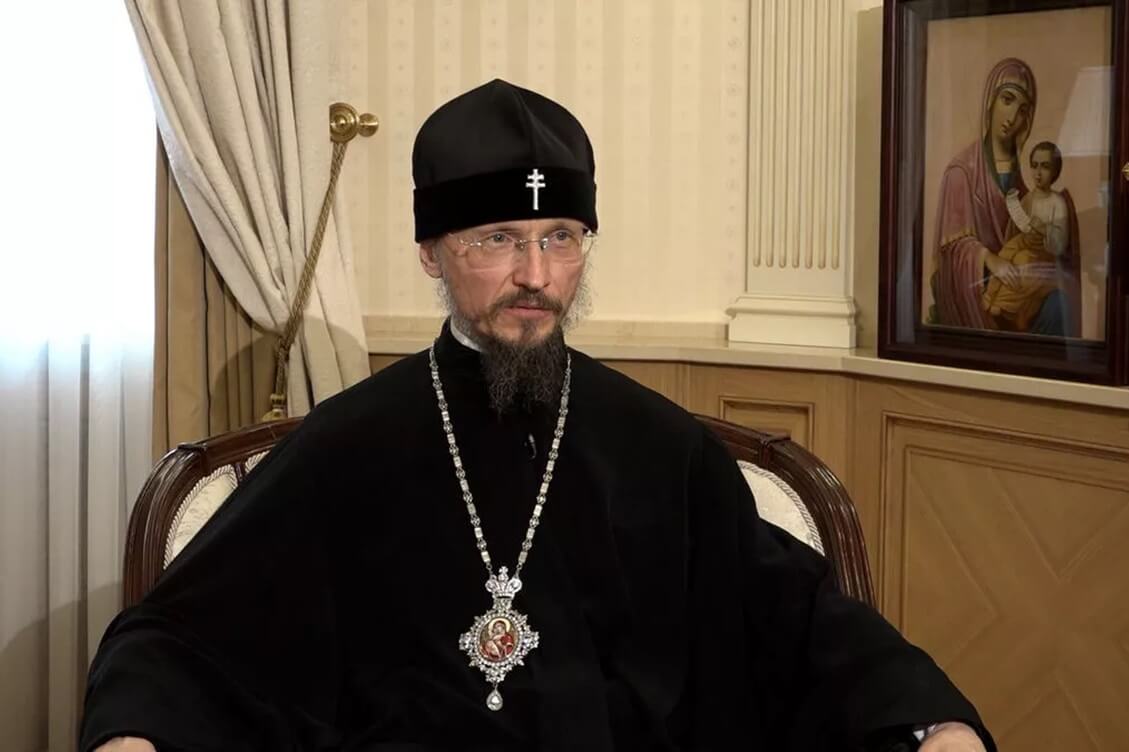Belarus’ morality council bans its first theater show

October 21, Pozirk. Minsk has canceled “My Husband’s Mistresses” at the request of the Public Morality Council, the Belarusian Orthodox leader said.
Metropolitan Vienijamin told reporters that the play was scheduled as a gift to women on Mother’s Day, observed in the country on October 14.
“This is one of the first such cases from the work of the morality council,” the leader of the Moscow-controlled church said. “Fortunately, there is good interaction between the ministries and departments that can influence the development of social processes.”
“We must point to the temptations that can harm the fragile souls of the younger generation and, if necessary, protect youth,” he added.
Council member Kaciaryna Dułava, director general of the Bolshoi Theatre of Belarus, said the panel also received many complaints against bloggers.
“The question was why some bloggers with millions of followers, whose culture is very low and knowledge is limited, suddenly take over minds . . . Why do they suddenly become leaders among young people?”
The Belarusian Exarchate of the Russian Orthodox Church and the pro-government Union of Writers of Belarus founded the council in 2009 “to preserve and strengthen society’s moral values and traditions, which are based on the centuries-old creative, spiritual and cultural experience of the Belarusian people.”
The Minsk troupe Comedy-Art has performed the play since 2012.
Belarus has established a network of censorship councils in the last few years.
Since February 2021, former Information Minister Lilija Ananič has headed a national commission that advises to prosecutors what products should be branded as extremist content.
Based on the commission’s advice, courts have banned works of literature, music and art, including poems by Belarusian classic Vincent Dunin-Marcynkievič, a novel by contemporary writer Alhierd Baharevič, songs by the punk rockers Daj Darohu! and other bands, an edition of selected works by Belarusian National Republic Prime Minister Vacłaŭ Łastoŭski and three books by Ihar Mielnikaŭ, a historian sentenced on September 13 to four years in prison for an interview with Euroradio.
The National Council on Historical Policy has recently vowed to purge book stores and education establishments of extremist literature. The council is chaired by Dźmitryj Krutoj, head of the Łukašenka administration.
Also read: Collections of works by late Łastoŭski and Pietraškievič declared extremist
- Politics, SecurityBelarus’ defense minister blames Ukraine for persistent tensionsThe material is available only to POZIRK+
- Society
- Politics, SecurityLithuania withdraws from anti-personnel landmines treatyThe material is available only to POZIRK+
- Politics, Security
- PoliticsEx-CEO of Belorusy i Rynok Załatych moves to Warsaw months after release from Belarus prisonThe material is available only to POZIRK+
- Society
- SocietyFrench traveler arrested at Belarusian border for carrying a handgunThe material is available only to POZIRK+
- Politics
- Politics, SecurityPoland reports incursion by balloons from Belarus on Christmas nightThe material is available only to POZIRK+
- PoliticsCityDog Instagram account added to extremist content listThe material is available only to POZIRK+
- Society
- Politics, SocietyBelarus records first conviction for fighting alongside Russia as political prisoner numbers remain highThe material is available only to POZIRK+
- Politics, SecurityBelarus’ KGB "maintains communication channels" with Lithuanian and Polish counterparts, chief saysThe material is available only to POZIRK+
- Politics, SecurityUkrainian court sentences local man to 15 years in prison for allegedly spying for BelarusThe material is available only to POZIRK+
- Politics, SecurityUkraine considers responses to Oreshnik deployment in BelarusThe material is available only to POZIRK+
- Politics, SecurityKGB working to prevent opposition-government dialogue, chief saysThe material is available only to POZIRK+
- PoliticsŁukašenka releases 569 prisoners since July 2024, 189 forced into exileThe material is available only to POZIRK+
- Politics, SecurityKGB chief reiterates claim that journalist Pratasievič worked for intelligence servicesThe material is available only to POZIRK+
- Politics, SecurityKGB chief: foreign intelligence network dismantled in BelarusThe material is available only to POZIRK+
- Economy



